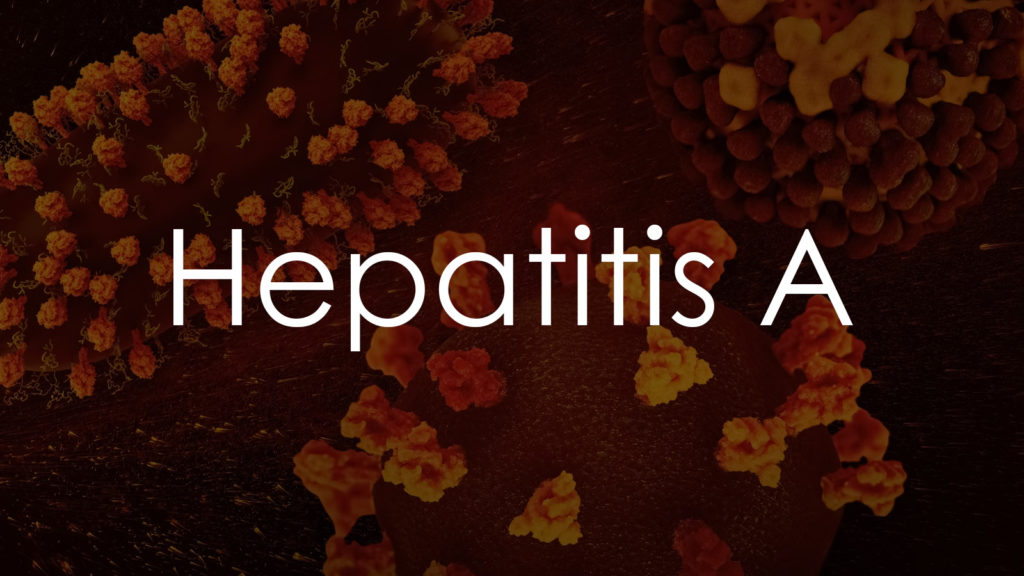Treatment of Hepatitis A focuses on alleviating symptoms and supporting the body’s recovery process. Understanding the various aspects of Hepatitis A treatment can help manage the condition effectively and ensure a smooth recovery.

Symptomatic Treatment
Rest and Recovery
Rest is crucial for individuals with Hepatitis A. The body needs time to heal and fight off the infection. Adequate rest can help reduce fatigue and other symptoms associated with the illness.
Hydration
Staying well-hydrated is essential, especially if symptoms include vomiting and diarrhea. Drinking plenty of fluids such as water, oral rehydration solutions, and clear broths can prevent dehydration.
Pain Management
Over-the-counter pain relievers, such as those referring to nonsteroidal anti-inflammatory drugs (NSAIDs), can help manage pain and reduce fever. It is important to follow medical advice regarding which pain relievers are safe, as some can affect liver function.
Nausea Control
Medications to control nausea and vomiting, referred to as antiemetics, can provide relief from gastrointestinal symptoms. These medications should be used under the guidance of a healthcare professional.
Dietary Recommendations
Balanced Nutrition
A balanced diet is essential for recovery from Hepatitis A. Eating a variety of nutritious foods can help support the immune system and improve overall health. Focus on including fruits, vegetables, lean proteins, and whole grains.
Small, Frequent Meals
Eating small, frequent meals can be easier on the digestive system, especially if nausea and loss of appetite are present. This approach can help ensure adequate nutrient intake without overwhelming the stomach.
Avoiding Alcohol
Avoiding alcohol is crucial during recovery, as alcohol can further damage the liver and interfere with the healing process. Abstaining from alcohol allows the liver to recover more effectively.
Limiting Fatty Foods
Limiting the intake of fatty and fried foods can reduce the burden on the liver. Opt for lighter, easily digestible foods to minimize digestive discomfort and support liver function.
Preventing Transmission
Good Hygiene Practices
Practicing good hygiene, such as frequent handwashing with soap and water, can prevent the spread of Hepatitis A. This is particularly important after using the bathroom and before preparing or eating food.
Vaccination for Close Contacts
Close contacts of individuals with Hepatitis A should consider vaccination to prevent transmission. The vaccine is highly effective in preventing infection and can provide long-term protection.
Avoiding Food Preparation
Individuals with Hepatitis A should avoid preparing food for others until they are no longer infectious. This helps prevent the spread of the virus through contaminated food.
Medical Monitoring
Regular Check-Ups
Regular medical check-ups are important to monitor liver function and overall health during recovery from Hepatitis A. Healthcare providers can perform blood tests to assess liver enzymes and bilirubin levels.
Liver Function Tests
Liver function tests are crucial in evaluating the extent of liver inflammation and damage. These tests help guide treatment decisions and ensure the liver is recovering properly.
Monitoring Complications
While rare, complications can occur with Hepatitis A, especially in individuals with preexisting liver conditions. Regular monitoring can help detect and manage any complications early.
Immunoglobulin Therapy
Post-Exposure Prophylaxis
Immunoglobulin therapy can be used as post-exposure prophylaxis for individuals who have been exposed to Hepatitis A but are not yet vaccinated. This therapy involves administering antibodies to help prevent the infection from developing.
Timing and Administration
Immunoglobulin should be administered as soon as possible after exposure for maximum effectiveness. It provides temporary protection and can reduce the severity of symptoms if the infection develops.
Long-Term Outlook
Full Recovery
Most individuals with Hepatitis A recover fully within a few months without lasting liver damage. Symptoms gradually improve as the liver heals, and normal activities can be resumed.
Building Immunity
Recovery from Hepatitis A provides lifelong immunity against the virus, meaning individuals will not get infected again. However, maintaining good hygiene and avoiding high-risk behaviors remain important.
Follow-Up Care
Follow-up care with healthcare providers ensures that the liver has fully recovered and that there are no lingering health issues. This care may include additional blood tests and monitoring of liver function.
Conclusion
Effective treatment of Hepatitis A involves managing symptoms, supporting the body’s recovery, and preventing transmission. By following medical advice, maintaining good hygiene, and making dietary adjustments, individuals can recover fully from Hepatitis A. Regular medical monitoring and supportive care are key components of a successful recovery, ensuring the liver heals properly and the patient returns to normal health.